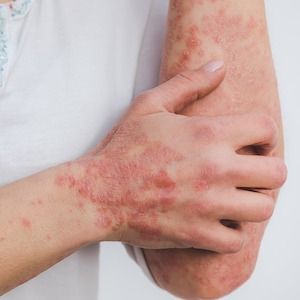Key Takeaways
What was the goal of the study?
- The goal of this study was to explore how measures of mental health and social support differed by glaucoma status during the early days of the COVID-19 pandemic, including a population of 56,113 individuals in the NIH All of Us database.
What did it find?
- Patients with glaucoma had lower rates of reporting stress from social distancing and were less likely to report unhealthy coping with social distancing, but also less likely to have assistance if they became sick with COVID-19.
What did it conclude?
- After adjustments, multivariable logistic regression indicated no difference in measures of mental health and social support between those with and without a diagnosis of glaucoma.
The onset of the COVID-19 pandemic challenged many aspects of society and new findings from the National Institutes of Health (NIH) All of Us Research Program explored how measures of mental health and social support differed by glaucoma status.
Results from the analysis suggest patients with glaucoma did not perform worse on measures of mental health and coping strategies in the early days of the pandemic compared to those without glaucoma, but a substantial proportion still endured stress, social isolation, and probable depression.1
“This is part of a larger body of work that suggests that mental health can directly have systemic impacts through autonomic nervous system changes (among other mechanisms) which is postulated to cause changes in blood flow and intraocular pressure that may accelerate glaucoma progression,” investigators wrote.1 “Though an early body of research, addressing mental health concerns appears increasingly relevant to providing comprehensive glaucoma care by having both social and potentially biological ramifications.”
At the time of analysis in February 2022, over 300,000 participants had enrolled in the NIH All of Us Research Program. Investigators at the Shiley Eye Institute, University of California, San Diego studied adults aged 40 and over who participated in the COVID-19 Participant Experience (COPE) survey as part of the program. The survey was recurring, with six versions administered at the time of study, beginning in May 2020, and occurring most recently in February 2021.
Led by Sally L. Baxter, MD, MSc, the team focused their analysis on demographics, mental health measures, and availability of social support if participants were infected with COVID-19. Mental health measures consisted of the calculation of Patient-Health Questionaire-9 scores using two different binary cutoffs for probable depression (>4 and >9). Measures of social support included whether participants had someone available to help if they were sick with COVID-19 and confined to bed or had someone to help with daily activities.
The study identified 56,113 individuals in the All of Us database who answered at least one version of the COPE survey, of which 42,484 individuals (75.7%) were 40 years and older. In the included study population, 2912 (6.9%) had a diagnosis of glaucoma. These patients had a median age of 72 years, compared to 67 years for the non-glaucoma population.
The findings suggest over one-third of participants had a PHQ-9 score >4 (glaucoma; 918, 31.5%; non-glaucoma; 14405, 36.4%), indicating mild to severe probable depression. This significantly varied by glaucoma status (P = .001) on chi-square tests.
Additionally, patients with glaucoma had lower rates of reporting some or a lot of stress from social distancing (P <.001), according to the data. The most common coping strategies used during social distancing for both groups included eating healthy, exercising, and sleeping well, and avoiding alcohol and drugs. On Pearson’s Chi-squared tests, investigators found glaucoma patients were less likely to report drinking alcohol (P = .003), eating more food than usual (P = .004), and using marijuana (P = .006) to cope with social distancing, compared to those without a diagnosis of glaucoma.
Data show between 40.5–51.3% of participants reported having social support all of the time if they were sick with COVID-19 and required help. However, results suggest those with glaucoma were less likely to report having someone to help prepare meals (P = .005) or help with daily chores (P = .003) if they became sick with COVID-19.
Upon further analysis, multivariable logistic regression adjusting for age, gender, race, ethnicity, and income indicated no difference in measures of mental and social support between those with and without a diagnosis of glaucoma.
In their conclusion, investigators reiterated the unknowns regarding the far-reaching effects of the COVID-19 pandemic on the population with glaucoma.
"Continued research is important moving forward as the possibility of new COVID variants and subsequent shutdowns may complicate efforts to return practice to normal,” they wrote.1 “...an aging glaucoma population makes any mental health consequences related to this pandemic more relevant.”
References
- Delavar, A., Bu, J.J., Radha Saseendrakumar, B. et al. Mental health and social support among glaucoma patients enrolled in the NIH All of Us COVID-19 Participant Experience (COPE) survey. BMC Ophthalmol 23, 63 (2023). https://doi.org/10.1186/s12886-023-02771-1






